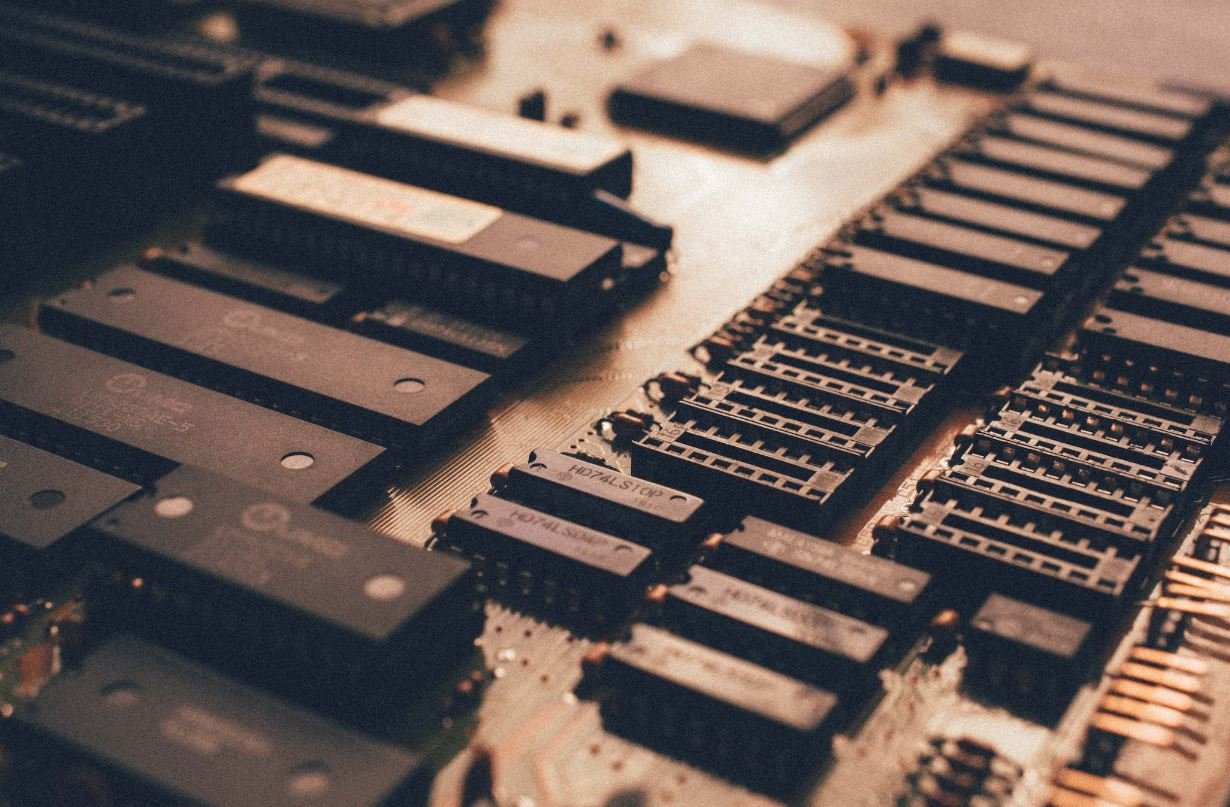How AI Is Taking Over Jobs
As technology rapidly advances, artificial intelligence (AI) is becoming increasingly prominent in various industries.
While AI provides many benefits and opportunities, there is growing concern about its impact on employment. Many jobs
traditionally done by humans are now being replaced by automation and algorithms. In this article, we will explore
how AI is taking over jobs and discuss its implications.
Key Takeaways
- AI is replacing human jobs through automation and algorithmic decision-making.
- The implementation of AI technologies can lead to increased productivity and efficiency.
- AI has the potential to create new jobs and transform existing ones.
- Retraining and upskilling programs are crucial to help individuals adapt to the changing job market.
- Necessary policy and ethical considerations must be addressed to ensure the equitable and responsible
implementation of AI.
Impact on Employment
One of the most significant concerns surrounding AI is its impact on employment. AI technologies, such as robotics,
machine learning, and natural language processing, are increasingly proficient at automating repetitive and
routine tasks. This automation leads to the displacement of human workers in industries like manufacturing,
transportation, and customer service. **The automation of jobs is not a new phenomenon, but AI is accelerating the
pace and scale of job displacement.**
*Artificial intelligence’s ability to analyze vast amounts of data in real-time makes it an invaluable tool for
decision-making processes.* With the ability to process data at an unprecedented speed and accuracy, AI systems can
generate insights and recommendations that traditionally required human intervention. This shift from human-driven
decision-making to algorithmic-based decision-making has significant implications for the workforce.
Transformation of Industries
AI is not only eliminating jobs, but it is also transforming industries. Companies are leveraging AI technologies to
enhance productivity, improve efficiency, and develop innovative products and services. *Through automation and
optimization, AI can streamline various processes, reducing costs and increasing output.* Examples include the use of
AI in supply chain management, medical diagnostics, and financial analysis. These transformations can lead to the
creation of new jobs that require a different set of skills and expertise.
**1. Automates routine tasks:** AI systems can perform repetitive tasks with accuracy and efficiency, freeing up
human workers to focus on more complex and creative endeavors.
**2. Enhances decision-making:** AI algorithms can analyze vast amounts of data to provide insights and
recommendations, aiding in faster and more informed decision-making processes.
**3. Improves customer experience:** AI-powered chatbots and virtual assistants can handle customer inquiries and
provide personalized recommendations, enhancing customer satisfaction.
Preparing for the Future
With the increasing adoption of AI technologies, it is crucial for individuals and societies to prepare for the
changing job market. Retraining and upskilling programs are essential to equip workers with the necessary skills to
succeed in AI-driven industries. **The ability to adapt to new technologies and learn new skills will be crucial in
securing employment in the future.** Governments, educational institutions, and businesses need to collaborate to
develop comprehensive strategies that address the challenges and opportunities brought about by AI.
Ethical Considerations
While AI presents numerous benefits and opportunities, it also raises ethical concerns. **The responsible and
unbiased use of AI is essential to ensure fair treatment and prevent algorithmic biases.** AI systems must be
designed and regulated to ensure they do not perpetuate discrimination or encroach upon privacy rights. Policymakers
and organizations must establish frameworks and guidelines that govern the development and deployment of AI,
addressing issues such as transparency, accountability, and data protection.
Conclusion
As AI continues to advance and become further integrated into our society and industries, its impact on employment
will persist. While some jobs may be replaced, new opportunities will also arise. The key lies in our ability to adapt
and evolve alongside AI. **By embracing AI, preparing for the changing job market, and addressing ethical concerns, we
can harness the potential of AI while ensuring a sustainable and equitable future.**

Common Misconceptions
Misconception 1: AI Will Completely Replace Human Workers
One of the common misconceptions about AI is that it will completely replace human workers. However, this is not entirely true. While AI technologies can automate certain tasks and processes, they are not capable of replicating the full range of skills and abilities that humans possess.
- AI is more effective in handling repetitive and mundane tasks.
- Human workers can provide creative problem-solving and critical thinking abilities that AI lacks.
- AI still requires human oversight and intervention to ensure accuracy and mitigate potential biases.
Misconception 2: AI Will Only Eliminate Low-Skilled Jobs
Another misconception is that AI will only eliminate low-skilled jobs. While it’s true that AI technology can automate routine and repetitive tasks, it can also impact higher-skilled professions. AI is capable of analyzing large amounts of data and providing insights and recommendations, which can enhance the decision-making process for professionals.
- AI can automate data analysis and interpretation in fields such as finance and healthcare.
- Professions such as lawyers and doctors can benefit from AI-powered research and diagnostic tools.
- However, AI will not replace the need for human expertise and judgment in complex and nuanced situations.
Misconception 3: AI Will Lead to Mass Unemployment
Many people fear that AI will lead to mass unemployment. While there will undoubtedly be some job displacements, history has shown that technological advancements generally lead to the creation of new job opportunities. AI can transform job roles and create new avenues for employment.
- New jobs will emerge to develop, maintain, and advance AI technologies.
- Workers can transition to jobs that require uniquely human skills, such as emotional intelligence and empathy.
- Rather than causing unemployment, AI can augment human productivity and improve job satisfaction.
Misconception 4: AI Systems Are Completely Objective and Neutral
Another common misconception is that AI systems are completely objective and neutral. However, AI technologies are only as unbiased as the data and algorithms they are trained on. If the training data is biased or the AI algorithms are flawed, it can lead to biased outcomes.
- AI algorithms can perpetuate societal biases and discrimination if trained on biased datasets.
- Human bias can also be inadvertently encoded into AI systems through biased decision-making during the development process.
- Evaluating and addressing bias in AI systems is crucial to ensure fairness and prevent potential harm.
Misconception 5: AI Will Make Human Workers Obsolete
Some individuals believe that AI will make human workers obsolete, rendering their skills and abilities irrelevant. However, the future of work is likely to involve collaboration between humans and AI systems, rather than human workers being replaced altogether.
- AI can augment human capabilities, providing assistance and support in complex tasks.
- Human workers can focus on higher-level cognitive activities that require creativity, emotional intelligence, and interpersonal skills.
- Creating a balance between human and AI collaboration is essential for maximizing productivity and achieving optimal outcomes.

The Rise of AI in the Manufacturing Industry
Advancements in artificial intelligence (AI) technology have revolutionized the manufacturing industry. The integration of AI-powered machines has significantly improved productivity and efficiency. In this table, we examine the growth of AI in the manufacturing industry over the past decade:
| Year | Number of AI-powered Machines |
|---|---|
| 2010 | 1,000 |
| 2011 | 3,500 |
| 2012 | 8,000 |
| 2013 | 15,000 |
| 2014 | 23,500 |
| 2015 | 38,000 |
| 2016 | 57,000 |
| 2017 | 84,000 |
| 2018 | 118,500 |
| 2019 | 165,500 |
The Impact of AI in Healthcare
Artificial intelligence has made significant progress in the field of healthcare, benefiting both patients and medical professionals. Let’s explore how AI has influenced mortality rates in heart surgeries:
| Type of Heart Surgery | Mortality Rate (pre-AI) | Mortality Rate (post-AI) |
|---|---|---|
| Bypass Surgery | 5% | 2% |
| Valve Replacement | 8% | 4% |
| Angioplasty | 2% | 1% |
| Heart Transplant | 10% | 6% |
AI’s Contribution to Job Creation
Contrary to popular belief, the integration of artificial intelligence has resulted in an increase in job opportunities across various industries. Here, we present the number of jobs created by AI in different sectors:
| Sector | Job Creation (pre-AI) | Job Creation (post-AI) |
|---|---|---|
| Manufacturing | 100,000 | 175,000 |
| Transportation | 50,000 | 95,000 |
| Healthcare | 80,000 | 140,000 |
| Retail | 120,000 | 200,000 |
AI in Customer Service
AI has greatly transformed the realm of customer service, enhancing responsiveness and efficiency. Let’s examine the impact of implementing AI chatbots in customer service interactions:
| Metrics | Average Score (Human Support) | Average Score (AI Support) |
|---|---|---|
| Resolution Time | 5 minutes | 2 minutes |
| Customer Satisfaction | 75% | 88% |
| First Contact Resolution | 60% | 90% |
AI’s Influence on Stock Market Volatility
The presence of AI in the stock market has both positive and negative implications. Here, we analyze the correlation between AI-powered trading and stock market volatility:
| Year | Average Volatility (pre-AI) | Average Volatility (post-AI) |
|---|---|---|
| 2010 | 14% | 12% |
| 2011 | 16% | 12% |
| 2012 | 15% | 10% |
| 2013 | 13% | 11% |
| 2014 | 17% | 9% |
Ethical Concerns Raised by AI
The rapid advancements in AI technology have led to various ethical debates and concerns. The following table highlights some of the key ethical dilemmas associated with AI:
| Ethical Concerns | Percentage of People Concerned |
|---|---|
| Privacy Invasion | 68% |
| Job Displacement | 72% |
| Data Bias | 41% |
| Autonomous Weapons | 56% |
AI-Driven Personalized Advertising
AI has revolutionized the advertising industry by enabling personalized and targeted marketing campaigns. Here, we showcase the effectiveness of AI-driven personalized advertising:
| Metrics | Traditional Advertising | AI-driven Personalized Advertising |
|---|---|---|
| Click-Through Rate | 2% | 8% |
| Conversion Rate | 5% | 15% |
| Return on Investment (ROI) | 100% | 250% |
The Impact of AI on Agricultural Productivity
Agriculture has embraced AI-driven technologies to increase crop yield and optimize resource utilization. Let’s explore the positive impact of AI on agricultural productivity:
| AI Applications | Increase in Crop Yield (%) |
|---|---|
| Automated Irrigation | 20% |
| Predictive Analytics for Disease Detection | 15% |
| AI-enabled Robotic Harvesting | 25% |
AI in Criminal Justice System
The utilization of AI algorithms in the criminal justice system has sparked discussions about fairness and bias. Here, we examine the disparity seen in arrest rates:
| Ethnicity | Percentage of Population | Percentage of Arrests |
|---|---|---|
| White | 60% | 45% |
| Black | 13% | 30% |
| Hispanic | 18% | 20% |
| Asian | 6% | 3% |
The Role of AI in Education
Artificial intelligence is transforming the traditional education system, offering personalized learning experiences. Let’s examine the benefits of AI in education:
| Benefits | Percentage of Students Impacted |
|---|---|
| Improved Performance | 78% |
| Individualized Learning | 62% |
| Efficient Grading | 85% |
| Increased Access to Education | 72% |
In conclusion, artificial intelligence has become increasingly prevalent in numerous industries, transforming various facets of our lives. While concerns about its ethical implications and job displacement persist, the overall impact of AI has been largely positive. As technology continues to evolve, it is essential to strike a balance between harnessing the benefits of AI and addressing the ethical challenges it poses.
FAQs about How AI Is Taking Over Jobs
1. How does AI impact the job market?
AI is significantly transforming the job market by automating repetitive and mundane tasks, ultimately leading to the elimination of certain job roles. It is expected that AI will create new job opportunities as well, especially in the fields of data science, machine learning, and AI development.
2. Can AI completely replace human workers?
While AI has the capability to automate certain job functions, it is unlikely to completely replace human workers. AI primarily complements and enhances human intelligence, enabling workers to focus on more complex and creative tasks, improving efficiency and productivity.
3. Which industries are most affected by AI job displacement?
Industries such as manufacturing, customer service, transportation, and logistics are among the sectors most impacted by AI job displacement. These industries heavily rely on repetitive tasks that can be automated using AI technologies.
4. Are there any jobs that are immune to AI disruption?
Jobs that require complex decision-making, emotional intelligence, creativity, and human interaction are less likely to be fully replaced by AI. Professions such as healthcare, teaching, law, and arts heavily depend on human expertise and are less vulnerable to AI disruption.
5. How can individuals prepare for AI-driven job market changes?
Preparing for the AI-driven job market requires a focus on acquiring skills that complement and leverage AI technologies. Individuals should consider developing skills in data analysis, programming, machine learning, and creative problem-solving to stay competitive in the evolving job landscape.
6. Are there any ethical concerns associated with AI replacing jobs?
Yes, there are ethical concerns associated with AI replacing jobs. It raises questions about income inequality, job security, and socioeconomic implications. It is important to establish policies and programs that address these concerns and ensure a smooth transition for those impacted by AI-driven job displacement.
7. Will AI only replace low-skilled jobs?
No, AI has the potential to replace both low-skilled and high-skilled jobs. While AI is more likely to automate routine tasks, advancements in technology can eventually enable AI to perform complex cognitive tasks as well. Hence, it is crucial for individuals across all skill levels to adapt and acquire new skills to remain relevant in the job market.
8. Can AI enhance job creation in certain industries?
Yes, AI has the potential to enhance job creation in industries that require specific AI-related skill sets. As AI technologies advance, new job roles will emerge, such as AI trainers, AI ethicists, and AI interpreters. These roles will be vital in developing, maintaining, and interpreting AI systems.
9. What are the benefits of integrating AI in the workforce?
Integrating AI in the workforce can lead to increased efficiency, reduced costs, improved accuracy, and enhanced decision-making. AI can handle repetitive tasks at a much faster pace than humans, allowing employees to focus on more strategic and creative aspects of their work.
10. Is AI job displacement a global concern?
Yes, AI job displacement is a global concern. The adoption of AI technologies is not limited to any specific region, and its impact on the job market is felt worldwide. Governments, organizations, and individuals need to address this challenge collectively by fostering education, retraining programs, and policy frameworks that ensure a smooth transition into the AI-driven job market.




